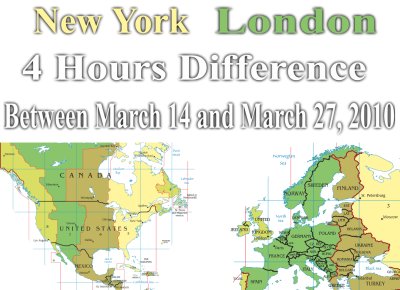After writing about
regulations of business practices on the Internet in the USA and in Europe yesterday, one of my readers, James, asked the following question in the comments:
So should I care about the FTC? My business is in the U.K. Some sites hosted at Hostgator in the US, others here in London though. --James
Let me repeat my first answer.
James,
Interesting and good question. I actually tipped the question off to some lawyer friends. Let's see what they come up with.
In general a business MUST respect all regulations and laws of the country where the customer -- especially a consumer -- is located.
Look at your hosting agreements with your US providers. They can pull the plug rather easily.
Hope that helps.
Let's face it, the regulations on both sides of the Atlantic are not too different altogether. It's much harder to comply with EU standards.
Disclaimer: IANAL (I am not a lawyer and this is not legal advice.)
Makes kind of sense, doesn't it. However, I wanted to know for sure and started some correspondence with lawyers, browsed government help sites for international trade issues, and news a bit.
Separate Website For Each Jurisdiction
The best solution would be to have a website for each jurisdiction and comply with the local standards there to the letter. That's actually what Amazon, Ebay, Paypal, and many international brands are doing (the really big businesses).
Too much effort for the little business probably, especially when starting out.
On the other hand one can be at a
big advantage when offering a sought after product in the purchaser's native language in that national market. It's also interesting from the standpoint of SEO as it can be much easier to dominate a smaller, national market nice (should use country level domain, e.g., .de, .es, .uk, …).
Two thoughts (without proof):
- Clickbank (world largest market place for digital products) reports growing sales of information products in foreign languages like Spanish, German, and French.
- Ever thought about developing a product and licensing a foreign language version to someone else who will deal with all the local legal issues?
Think about it.
Fully Comply With Either One Jurisdiction
Consumer protection laws on both sides of the Atlantic kick in as soon as consumers file complaints. Therefore, some businesses focus on implementing the regulations where they have most of their customers.
Of course, this can get you in trouble locally.
For example: The legislation on how to handle shipping cost in case of a customer return is more relaxed in the USA than it is in Europe. Or anti-spam laws are more rigorous in Europe as well, even in business to business scenarios.
You better comply with the rules of the government that you have to pay taxes to as they can get to you quickly. But you shouldn't screw your oversea customers as well.
By the way:
If your non-compliance, earnings, (possible fraud triggering criminal charges) are big enough the US- or any European government will hunt you down, no matter where you are. A simple non compliance with a disclosure requirement for example can be interpreted as being a criminal fraud.
One internationally operating lawyer I corresponded with pointed at a case of a UK citizen who was extradited from Australia where he lived at the time to the USA. He pleaded guilty for having violated US e-commerce laws and is serving a five year term in a US federal prison. Not funny at all.
I didn't ask
how big this fish was, but does it really matter?
Coming back to my initial statement:
“An ethical business should treat its customers as they can be expected to be treated as they are usually treated where thy live.”
You might not like those new regulations, they even might hurt your sales in the short run, … but only if you continue to do business on the fringe.
Don't risk violating the law in any country especially if you are making a nice full time income or more. Which brings me to in my opinion good a solution for small to medium businesses.
Hybrid Website Serving A Good Legal Mix
The major goal here is to optimally protect the business from a legal standpoint of view in both jurisdictions.
This is certainly not achieved by picking which regulations to comply with at random. An expert is required to balance the risk of getting prosecuted in any jurisdiction versus the customer experience.
Closing
The first job of your lawyer is to protect your business from governments and from not so honest customers respectively prospects.
Customer experience is the job of your business.
If your goal is to provide superior customer experience, I don't think that you will have problems with any legislation (in most cases) if you exercise due diligence.
Yours
John W. Furst
Not a lawyer: This article reflects my personal
opinion is not any form of legal advice.





